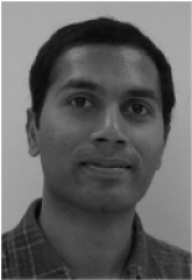
RI Seminar
October

3:30 pm to 4:30 pm
Event Location: NSH 1305
Bio: Koushil Sreenath is an Assistant Professor of Mechanical Engineering and a courtesy Assistant Professor of Robotics Institute at Carnegie Mellon University. His research interest lies at the intersection of highly dynamic robotics and applied nonlinear control. His work on dynamic legged locomotion on the bipedal robot MABEL was featured on The Discovery Channel, CNN, ESPN, FOX and CBS. His work on dynamic aerial manipulation was featured on IEEE Spectrum, New Scientist, Huffington Post, and also won the best paper award at Robotics: Science and Systems. His work on adaptive sampling with mobile sensor networks was published as a book titled “Adaptive Sampling with Mobile WSN” by IET.
Abstract: Biological systems are able to move with great elegance, agility, efficiency, and speed in a wide range of environment. Endowing machines with similar capabilities requires designing controllers that can address the challenges of high-degree-of-freedom, high-degree-of-underactuation, nonlinear and hybrid dynamics, with the added constraints of available actuators, sensors and processing power. In this talk, I will present the design of planning and control policies for two problems – dynamic legged locomotion, and dynamic aerial manipulation. First, I will discuss a nonlinear controller design that not only preserves the natural compliant dynamics of the system as part of the closed-loop but also provides a way of incorporating torque constraints into the control design. I will show experimental results of stable, efficient, robust walking, and stable, fast running on MABEL, a planar bipedal robot weighing 65 Kg and 1m tall at the hips. Next, I will discuss how a coordinate-free, geometric formulation of the dynamics of a quadrotor carrying a suspended payload allows us to synthesize planners and controllers with almost-global stability properties for aggressive maneuvers, with the ability to recover from almost any global state.